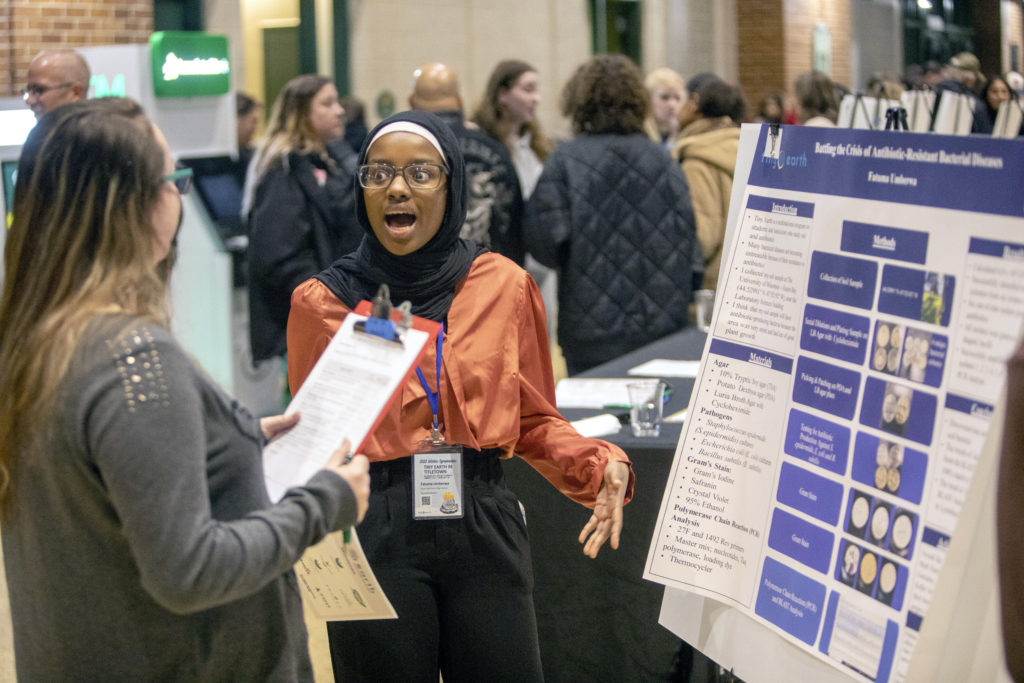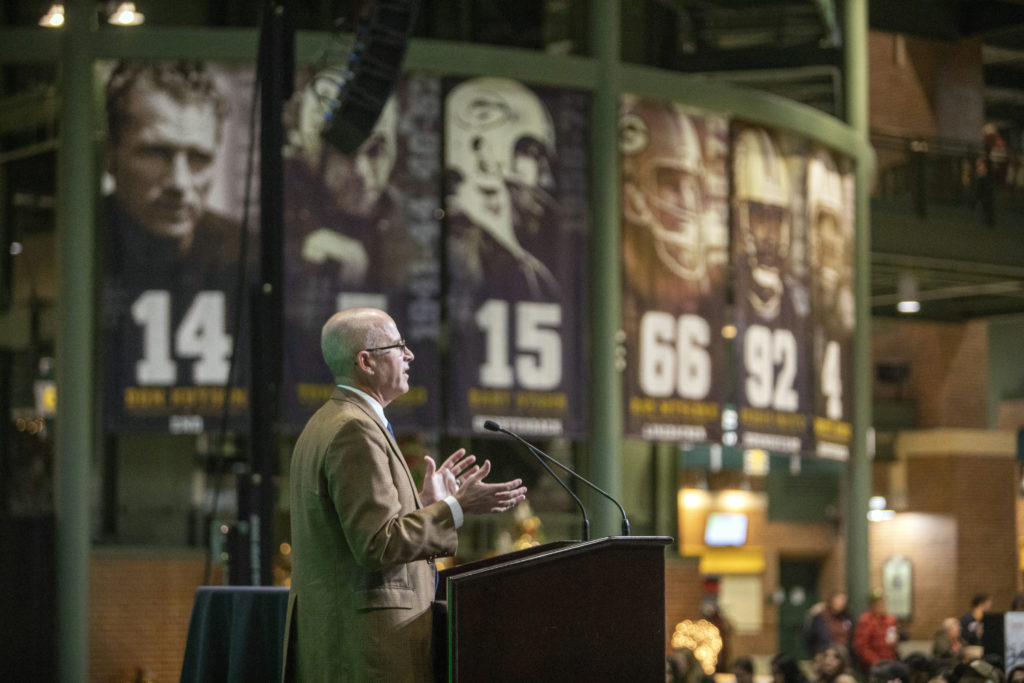By Daniel Kramer
Managing Editor
GREEN BAY – On Friday, Dec. 9 the Lambeau Field Atrium hosted students from across the state as they presented their projects to help mitigate the global public health crisis of antibiotic resistance at the “Tiny Earth Winter Symposium.”

The symposium is hosted by a committee of instructors from Northeast Wisconsin Technical College, UW-Green Bay, the College of Menominee Nation and St. Norbert University.
Dr. David Andes, from the University of Wisconsin, was the keynote speaker. Andes is the head of the division of infectious disease within the Department of Medicine as well as the Department of Microbiology and Immunology at the Wisconsin School of Medicine and Public Health.
“I was impressed with the projects,” he said. “They identified promising leads for future identification of novel antibiotics. More importantly, the students were exposed to an important clinical problem and the utility of scientific approaches to discover novel solutions. It was amazing to see the next generation of young scientists focused on this critical area. I look forward to following their journey in science.”
Maeve Grogan was a student presenting her research findings at the first Tiny Earth Symposium in 2018. Today, she works at the Nature’s Way lab in Green Bay and was a judge at the symposium.
“The first one was very, very small,” she said. “There was less than half the amount when I started and it has scaled up quite a bit. The venue itself has gotten better. The posters have gotten better and just how they presented everything has gotten much better as well.

“I just talked to them about what made them interested in what they were working on,” she continued. “It’s more about giving the students feedback on how well they presented and what it would be like to be in a situation where they are presenting their own research for things. So instead of it being very competitive, it is more of a ‘hey, this is what you could do better or this is what you did great. And here are the tools that you can use to get better over the next one that you do.’ ”
Grogan went on to say she loved the content of the presentations.
“For example, there were students from I believe it was St. Norbert, that took the stems of plants and plated them right on to the agar that they were using instead of using soil and they found a really amazing way to make that work for them which was very different from just plain soil. So the content has really expanded over the years.”
UW-Green Bay Biology Professor Brian Merkel chairs the event and said the symposium is important on many different levels.

“It’s a great opportunity to showcase the value of partnerships to mitigate large problems to a wide audience,” he said in a press release. “For my part, Tiny Earth represents the realm of what is possible when innovative partnerships emerge for the greater good. The symposium wholly reflects the value of collaboration and service.”
Angelo Kolokithas, NWTC biology program director, said that many college students don’t get to participate in real-life research.
“This event allows students the experience to address and present on a worldwide issue,” he stated in a press release. “This is a great chance for the community to see what is happening within education to address a problem that impacts everyone – antibiotic resistance. The students also get a chance to educate the community on what we can all do to help fight this health crisis.”
